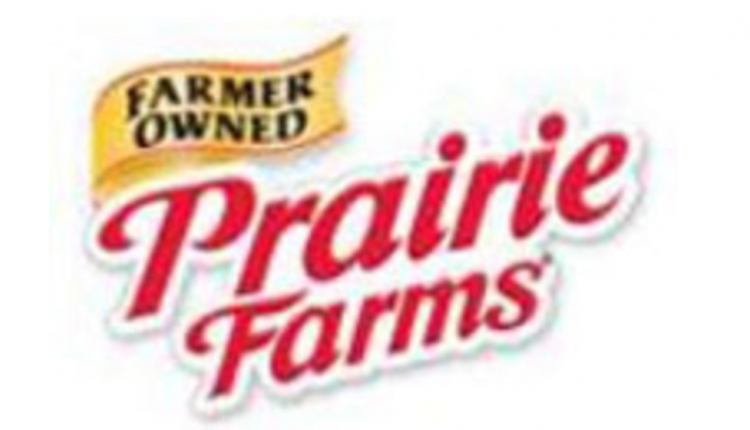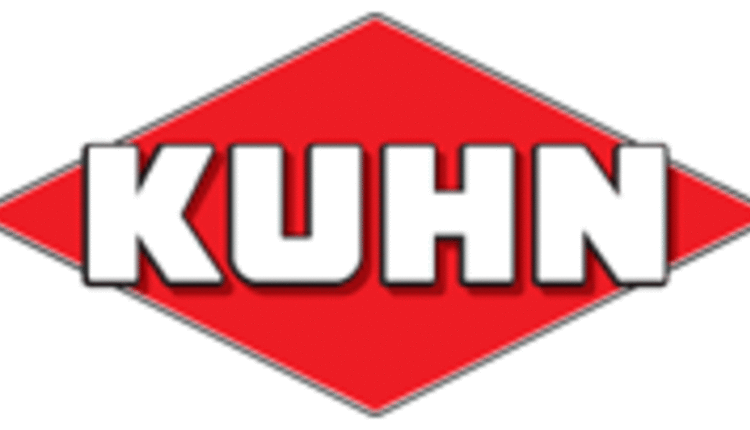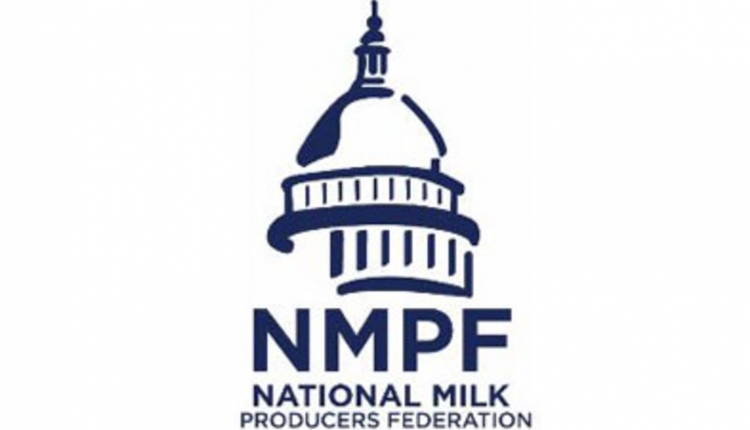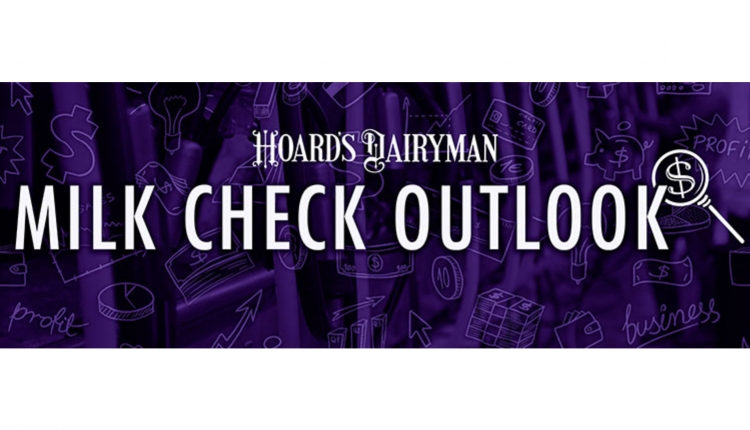When Kalyanna Williams says that there are opportunities for non-farm youth in the dairy industry, she speaks from experience.
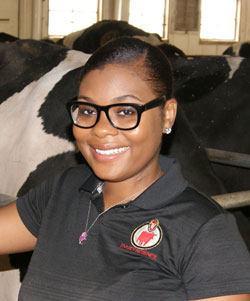
Williams, who recently took the job of an extension youth specialist in the University of Wisconsin-Madison dairy science department, grew up far from dairy cows. She was raised on the west side of Chicago and in the suburbs of Phoenix, Ariz., then earned a B.S. in animal sciences at Tuskegee University—which doesn’t have a dairy science program.
She fell into the dairy universe pretty much by accident during a summer internship at Iowa State University, when she was asked to help out on a dairy feeding project. “I loved working with the cows,” she says.
Back in Tuskegee, she Googled “dairy science grad programs,” which set her on the path to earning an M.S. in dairy science at the University of Wisconsin-Madison under the tutelage of Kent Weigel, professor and dairy science department chair.
There are two ways that graduate school prepared her for her new job.
First, Williams spent a lot of time working with cows. She spent several months at the Marshfield Agricultural Research Station to plan her research in heifer nutrition and to get some practical experience. She milked cows, cleaned pens, rode with the feeding crew, learned to do heat checks and became certified to perform artificial inseminations. Later on, she got more experience through the dairy science capstone class, in which students pair with an industry consultant to develop management recommendations for a working dairy farm.
Second, she spent a lot of time working with kids. Williams was active in three student organizations that do community outreach work with youth in underserved populations. She talked with youth about how to prepare for careers in science and agriculture. She organized a college fair featuring historically black colleges and universities that drew nearly 400 high-schoolers from Madison, Milwaukee, Green Bay, Beloit, Rockford and other communities.
So when the dairy youth job opened up, she says, “It was a perfect fit. It allowed me to use my degree in dairy science and also follow my passion for working with youth.”
As dairy youth specialist, Williams plans activities that teach dairy skills and promote dairy careers, ranging from 4H workshops and cattle judging contests to dairy science campus preview days and school visits. She’ll also be doing recruiting for the UW’s Farm and Industry Short Course (FISC), a non-degree residential program that prepares students for jobs in agriculture and natural resources.
Traditionally, participants in these programs have been kids who grew up around farming and are already interested in agricultural careers. But the dairy science department and FISC both see a need to expand beyond this core constituency.
“The traditional pool of potential dairy science students is smaller than it used to be, because there are fewer farm kids,” says Kent Weigel. “But a lot of young people who are not from farms are trying to figure what they’re going to do, including many who are smart and talented. We need people to work in our industry to keep it going and keep it growing.”
FISC director Jessie Potterton echoes that sentiment: “We need to grow Farm and Industry Short Course to include different audiences. Kalyanna has done amazing things connecting with nontraditional audiences. She has a lot to offer us.”
Williams took a step in that direction with this year’s Badger Dairy Camp, a two-day workshop that teaches cattle-showing skills and other dairy knowledge. This year she signed up 15 students from the Chicago High School for Agricultural Sciences. She also convinced some agribusiness executives to help defray the students’ camp fees.
“When I interviewed for the job, I said that I’d like to expand our programming to ensure that we’re inclusive to everyone,” she says. “That includes engaging with communities of color. It’s important that we reach out to those students. They’re not going to come to us, but there’s an interest there once they know about it. “
Kent Weigel acknowledges that there will be some challenges in designing programs that work for youth that grew up in the dairy business as well as those that are just getting their feet wet. But he says that Kalyanna Williams is up to the job.
“She’s smart and fearless and creative and incredibly enthusiastic,” he says. “And she just gets things done.”
